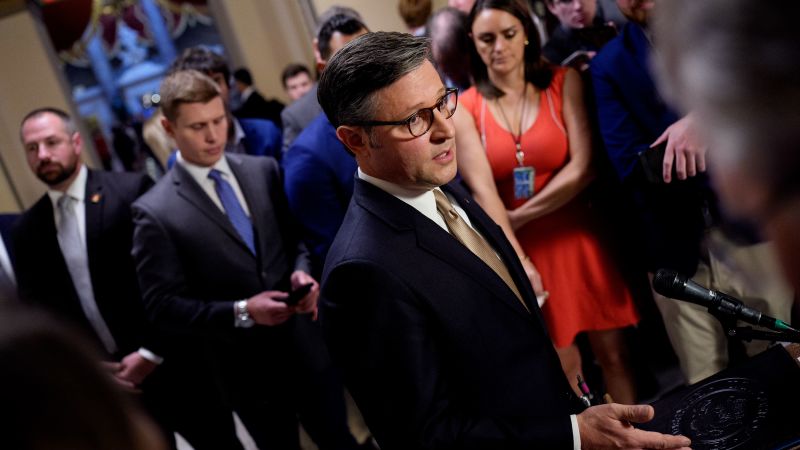The political landscape in America appears increasingly tumultuous, especially regarding issues that arise from the Jeffrey Epstein files. These concerns are causing divides among Republican lawmakers, an environment that contrasts with the administration of then-President Donald Trump, which seems to be aiming at redirecting attention toward its adversaries and the controversy surrounding the 2016 presidential election.
Recently, the pressure on GOP leaders has become palpable as calls for transparency surrounding Epstein’s case grow louder. This pressure culminated in a significant vote by a GOP-majority House Oversight subcommittee, which opted to subpoena the Department of Justice (DOJ) for relevant documents related to Epstein. Furthermore, House Oversight Chair James Comer has actively pursued testimonies from Epstein’s accomplice, Ghislaine Maxwell, who has been charged with numerous crimes, including sex trafficking of minors.
Maxwell, who is currently serving a 20-year prison sentence in Tallahassee, Florida, was questioned by Deputy Attorney General Todd Blanche in the last week, with her cooperation drawing further attention to the growing investigation. Meanwhile, there is a split emerging within Republican ranks concerning how the DOJ is managing these sensitive files. Some GOP members advocate for releasing more information to the public, indicating a rift in strategy regarding transparency in government.
In a notable instance, Missouri Republican Representative Eric Burlison criticized the administration’s handling of expectations around new discoveries related to Epstein. He labeled the way the situation has been framed as a “political mistake,” pointing out that leaders seemed to raise hopes without having thoroughly reviewed the files themselves. As constituents return to their representatives during congressional recesses, it is apparent that the Epstein case has become a focal point of concern among the public, with many fearing governmental secrecy.
Adding to the dramatic discourse is GOP Representative Mike Kennedy from Utah, a physician who equated the Epstein files to “a festering oil-infected wound.” He urged for immediate action to disclose any relevant documents, advocating for “full transparency,” provided that the identities of victims are protected. This sentiment echoes through the halls of Congress as various representatives call for accountability and openness regarding the handling of Epstein’s case.
In a unique twist, GOP Representative Thomas Massie, alongside Democratic Representative Ro Khanna, is attempting to bypass House Speaker Mike Johnson to compel a vote for the expedited release of files related to Epstein. This maneuver will require considerable backing from House members to carry through, highlighting the unusual bipartisan effort regarding such a contentious issue.
House Speaker Johnson has voiced his commitment to transparency in this process. Appearing on “Meet the Press,” he reaffirmed the commitment of House Republicans to release all pertinent evidence related to Epstein, navigating the contradictions within his party. Simultaneously, he has criticized Massie and Khanna’s proposal as reckless, citing inadequate protections for victims in its drafting and presentation.
The legal dimensions of this ongoing saga are complex. Oklahoma Senator Markwayne Mullin noted on CNN that Congress may not have the authority to enforce the release of these files, as it ultimately falls to judges to make those decisions. Despite attempts from various sources, including past announcements from Attorney General Pam Bondi urging for the release, the judicial system remains a gatekeeper of this sensitive information.
While Trump’s administration navigates domestic issues surrounding Epstein, it ironically coincides with his recent five-day trip to Scotland. During this trip, Trump announced a trade framework deal between the United States and the European Union. When questioned by the media about potential distractions related to the Epstein controversy, Trump quickly dismissed any correlation, maintaining that it was unrelated.
Despite past reassurances from Trump about his limited involvement or knowledge regarding the Epstein investigation, there are reports that indicate he was informed of his name appearing in the files by Bondi. This juxtaposition raises questions about the internal messaging and public assertions that characterize the administration’s response to ongoing inquiries.
As the situation unfolds, it becomes clear that the Epstein files are more than just documents; they are a crossroad for political strategy, public scrutiny, and the fight for transparency in governance. As evident from the discussions, both sides of the aisle are grappling with the realities of public trust, accountability, and the protection of vulnerable individuals caught in this complex web of high-profile allegations. The ramifications of these discussions will likely extend well beyond the current congressional recess and will continue to evolve in the public and political arenas.











